- Home
- Michael Grant
Lies Page 4
Lies Read online
Page 4
“Is it true?” Edilio asked.
“I don’t know, man. I doubt it. I mean, no way, right?”
“Probably should ask Astrid. She knows this kind of stuff.”
“Yeah, well, I’d rather wait on that.”
“Hey, hold up, Sam. Are you asking me to not tell her about that, either? You got me hiding two big things from the council?”
“It’s for their own good,” Sam said. “And for everyone’s good.” He took Edilio’s arm and drew him close. In a low voice he said, “Edilio, what kind of experience do Astrid and Albert really have? And John? Not to mention Howard, who we both know is just a jerk. You and me, we’ve been through every fight there’s been since the FAYZ came. I love Astrid, but she’s so into her ideas about how we have to get everything organized that she’s not letting me do what I need to do.”
“Yeah, well, we kind of do need some rules and stuff.”
“Of course we do,” Sam agreed. “We do. But in the meantime, Zil is kicking freaks out of their homes, and someone or something just dug its way up out of the ground. I need to be able to deal with stuff without everyone looking over my shoulder all the time.”
“Man, it isn’t cool to lay this on me,” Edilio said. Sam did not respond. It would be lousy to pressure Edilio any further. Edilio was right: it was wrong to ask this of him.
“I know that,” Sam said. “It’s just…look, it’s temporary. Until the council gets its act together and comes out with all its rules, someone still has to keep things from falling apart. Right?”
Finally Edilio sighed. “Right. Okay, I’ll get us a couple shovels. Fill this in quick before people start coming out.”
Jill was too old for the day care. Sam had known that. But he had dumped her in Mary’s lap, anyway.
Great. Just what Mary needed: one more kid to look after.
But it was hard to say no. Especially to Sam.
Mary cast a weary glance around the day care. What a mess. She’d have to round up Francis and Eliza and some of the others and take another shot at bringing some order to this disaster. Yet again.
She glanced with bitterness at the milky plastic sheet that covered the blown-out wall between the day care and the hardware store. How many times had Mary asked for some help dealing with it? The hardware store had been looted many times and the axes and sledgehammers and blowtorches were mostly gone, but there were still nails and screws and tacks strewn everywhere. Kids had to be watched constantly because they absolutely would crawl under the plastic and end up poking one another with screwdrivers and then crying and fighting and demanding Band-Aids, which had run out long ago and…
Mary took a deep breath. The council had a lot to do. A lot of problems to deal with. Maybe this wasn’t their top priority.
Mary forced a smile for the girl, who watched her solemnly and clutched her doll.
“I’m sorry, sweetie: what’s your name again?”
“Jill.”
“Well, it’s nice to meet you, Jill. You can stay here for a while until we work something else out.”
“I want to go home,” Jill said.
Mary wanted to say, Yeah, we all do, honey. We all want to go home. But she had learned that bitterness and irony and sarcasm didn’t really help when dealing with the littles.
“What happened? Why were you out on the streets?” Mary asked.
Jill shrugged. “They said I had to go.”
“Who?”
Jill shrugged again, and Mary gritted her teeth. So sick of being understanding. So deeply, deeply sick of being responsible for every stray child in Perdido Beach.
“Okay, then, do you know why you left your house?”
“They said they would…hurt me, I guess.”
Mary wasn’t sure she wanted to pry any deeper. Perdido Beach was a community in a permanent state of fear and worry and loss. Kids didn’t always behave too well. Older brothers and sisters sometimes lost it when dealing with their siblings.
Mary had seen things…things she would never have believed possible.
“Well, you can stay with us for a while,” Mary said. She gave the girl a hug. “Francis will tell you the rules, okay? He’s that big kid over in the corner.”
Jill turned away reluctantly and took a couple of hesitant steps toward Francis. Then she turned back. “Don’t worry: I won’t sing.”
Mary almost didn’t respond. But something about the way Jill had said it…
“Of course you can sing,” Mary said.
“I better not,” Jill said.
“What’s your favorite song?” Mary asked.
Jill looked bashful. “I don’t know.”
Mary persisted. “I’d like to hear you sing, Jill.”
Jill sang. A Christmas carol.
What child is this who laid to rest
on Mary’s lap is sleeping?
Whom angels greet with anthems sweet
While shepherds watch are keeping…
And the world stopped.
Later—how much later, Mary could not know—Jill sat down on an unoccupied cot, cradled her doll close, and fell to sleep.
The room had fallen silent as she sang. Every child standing stock-still, as if they’d been frozen. But everywhere eyes were alight and mouths formed dreamy half smiles.
When Jill stopped singing, Mary looked at Francis.
“Did you…”
Francis nodded. There were tears in his eyes. “Mary, you need to catch some sleep, hon. Eliza and I will handle breakfast.”
“I’m just going to sit down, rest my feet for a while,” Mary said. But sleep took her, anyway.
Francis woke her what seemed like mere minutes later. “I have to go,” he said.
“Is it time?” Mary shook her head to clear it. Her eyes didn’t seem to want to focus.
“Soon. And I have some good-byes to say first,” he said. He put his hand on her shoulder and said, “You’re a great person, Mary. And another great person has come to see you.”
Mary stood up, not really following what Francis was saying, just knowing that someone was there to see her.
Orsay. She was so slight and fragile looking Mary instinctively liked her. She seemed like one of the kids, almost, one of the littles.
Francis touched Orsay’s hand and almost seemed to bow his head as if in prayer for a moment. “Prophetess,” he said.
“Mother Mary, the Prophetess,” Francis said, performing a very formal introduction. Mary felt like she was meeting the president or something.
“Orsay, please,” Orsay said in a soft voice. “And this is my friend, Nerezza.”
Nerezza was very different from Orsay. She had green eyes and olive skin and hair that was black and lustrous, gathered in a sort of loose wave on one side. Mary did not recall having seen her before. But Mary was trapped in the day care most of the day; she didn’t socialize much.
Francis grinned a little nervously, it seemed to Mary.
“Happy rebirthday,” Nerezza said.
“Yes. Thank you,” Francis said. He squared his shoulders, nodded to Nerezza, and to Orsay said, “I have some more people to see, and not much time. Prophetess, thank you for showing me the way.” And with that, he turned away quickly and left.
Orsay seemed almost sickened. As though she wanted to spit something out. She nodded tersely to Francis’s back and gritted her teeth.
Nerezza’s face was unreadable. Deliberately, Mary thought, as though she was concealing an emotion she felt strongly.
“Hi…Orsay.” Mary wasn’t quite sure what to call her now. She’d heard kids talking about Orsay being some kind of prophet and she had dismissed it. People said all kinds of crazy things. But clearly she’d had some profound effect on Francis.
Orsay didn’t seem to know what to say next. She looked at Nerezza, who quickly filled the void. “The Prophetess wishes to help you, Mary.”
“Help me?” Mary laughed. “I actually have enough volunteers for once.”
�
��Not that.” Nerezza waved that off, impatient. “The Prophetess would like to adopt a recently arrived child.”
“Excuse me?”
“Her name is Jill,” Orsay said. “I had a dream about…” And then she trailed off, as though she wasn’t quite sure what the dream was. She frowned.
“Jill?” Mary repeated. “The little girl who was terrorized by Zil? She’s only been here a few hours. How did you even know she was here?”
Nerezza said, “She was forced out of her home because she was a freak. Now her brother is too scared and weak to care for her. But she’s too old for the day care, Mary. You know that.”
“Yes,” Mary said. “She’s definitely too old.”
“The Prophetess would care for her. It’s something she wants to do.”
Mary looked at Orsay for confirmation. And after a few seconds, Orsay realized it was her turn to speak and said, “Yes, I would like to do that.”
Mary didn’t feel quite right about it. She didn’t know what was going on with Orsay, but Nerezza was clearly a strange girl, brooding and even, it seemed to Mary, a little tough.
But the day care didn’t take older kids. It couldn’t. And this was hardly the first time Mary had temporarily sheltered an older kid who then found another place to get her meals.
Francis seemed to have been vouching for Orsay and Nerezza. He must be the one who had told Orsay about Jill while Mary was sleeping.
Mary frowned, wondering why Francis had been in such a hurry to leave. Rebirthday? What was that supposed to mean?
“Okay,” Mary said. “If Jill agrees, she can live with you.”
Orsay smiled. And Nerezza’s eyes glittered with satisfaction.
Justin had wet his bed sometime in the night. Like a baby. He was five years old, not a baby.
But there was no denying he had done it.
He told Mother Mary and she told him it was no big deal, it happened. But it didn’t used to happen to Justin. Not when he had a real mommy. It had been a long time since he had peed the bed.
He cried when he told Mother Mary. He didn’t like telling her because Mother Mary seemed like she might be getting sick or something. She wasn’t as nice as she used to be. He usually told Francis if he had to. Some nights he didn’t pee because he didn’t drink any water for practically all day. But last night he’d forgotten about not drinking water. So he had, but just a little.
He was five now, older than just about all the kids at the day care. But he was still wetting his bed.
Two big girls had come and taken the singing girl away. Justin had no one to take him away.
But he knew where his house was, his real house with his old bed. He never used to wet that bed. But now he had a stupid bed on the floor, just a mattress, and other kids stepped all over it, so that was probably why he was wetting his bed again.
His old house wasn’t very far away. He’d gone there before. Just to look at it and see if it was real. Because sometimes he didn’t believe it was.
He had gone to check and see if Mommy was there. He hadn’t seen her. And when he opened the door and went inside he had gotten too scared and he had come running back to Mother Mary.
But he was older now. He’d only been four and a half then, and now he was five. Now he probably wouldn’t be scared.
And he probably wouldn’t pee in his bed if he was at his real home.
SIX
57 HOURS, 17 MINUTES
DAYLIGHT, BRIGHT AND clear.
Sam and Astrid walked through the Mall. It didn’t take long. There was the fish stand, already almost bare, with just two small octopi, a dozen or so clams, and a small fish so ugly, no one had yet been brave enough to buy it.
The fish stand was a long folding table dragged from the school cafeteria. Plastic bins were lined up, the gray plastic kind that were used to bus dishes. A droopy cardboard sign held in place by duct tape hung from the front of the table. It read, “Quinn’s Seapreme Seafood.” And below that, in smaller print, “An AlberCo Enterprise.”
“What do you think that fish is?” Sam asked Astrid.
She peered closely at the alleged fish. “I think that’s an example of Pesce inedibilis,” she said.
“Yeah?” Sam made a face. “Do you think it’s okay to eat?”
Astrid sighed theatrically. “Pesce inedibilis? Inedible? Joke, duh. Try to keep up, Sam, I made that really easy for you.”
Sam smiled. “You know, a real genius would have known I wouldn’t get it. Ergo, you are not a real genius. Hah. That’s right: I threw down an ‘ergo.’”
She gave him a pitying look. “That’s very impressive, Sam. Especially from a boy who has twenty-two different uses for the word ‘dude.’”
Sam stopped, took her arm, and spun her toward him. He pulled her close. “Dude,” he whispered in her ear.
“Okay, twenty-three,” Astrid amended. She pushed him away. “I have shopping to do. Do you want to eat, or do you want to…dude?”
“Dude. Always.”
She looked at him critically. “Are you going to tell me why you were covered with mud this morning?”
“I tripped and fell. When I saw the girl, Jill, in the dark, I tripped over my own feet.” Not exactly a lie. Part of the truth. And he would tell her all of the truth just as soon as he’d had a chance to sort it out. It had been a weird, disturbing night: he needed time to think and work out a plan. It was always better to go to the council with a plan worked out; that way, they could just say okay and let him get on with it.
The Mall had been set up on the playground of the school. That way the younger kids could come and play on the equipment while older kids shopped. Or gossiped. Or checked each other out. Sam found himself looking a bit more carefully at the faces. He didn’t really expect to see Brittney walking around here. That was crazy. There had to be some other explanation. But just the same, he kept his eyes peeled.
What he would do if he did actually see a dead girl walking around was something he’d have to think about. As strange as life in the FAYZ could be, that was still one problem he hadn’t had to face.
In no particular order the Mall consisted of Quinn’s Seapreme Seafood; the produce stand named Gifts of the Worm; a bookstall identified as the Cracked Spine; the fly-covered stall of Meats of Mystery; Totally Solar—where two enterprising kids had scrounged a half dozen solar panels and would use them to charge batteries; the Sux Xchange where toys and clothing and miscellaneous junk were bartered and sold.
A wood-fired barbecue grill had been set up a little apart. You could take your fish or meat or vegetables there and have them cooked for a small charge. Once grilled over the coals, pretty much everything—venison, raccoon, pigeon, rat, coyote—tasted the same: smoky and burned. But none of the stoves or microwaves worked anymore, and there was no more cooking oil, certainly no more butter, so even the kids who chose to cook their own food ended up duplicating the same experience. The only alternative was boiling, and the two girls who ran the place kept a big pot simmering. But everyone agreed that grilled rat was far superior to boiled.
The “restaurant” changed names every few days. It had already been Smokey Sue’s, Perdido I Can’t Believe It’s Not Pizza Kitchen, Eat and Urp, In ’n’ Get Out, Smokey Tom’s, and Le Grand Barbecue. Today the sign read “WTF?” and in smaller letters, “What the Food?”
Kids lounged at two of the three rickety dining tables, chairs tilted back, feet up. Some were eating, some just hanging out. They looked like a junior version of some kind of end-of-the-world movie, Sam thought, not for the first time. Armed, dressed in bizarre outfits, topped with strange hats, men’s clothing, women’s clothing, tablecloth capes, barefoot or wearing ill-fitting shoes.
Drinkable water now had to be trucked from the half-empty reservoir up in the hills outside of town. Gasoline was strictly rationed so that the water trucks could be kept running as long as possible. The Council had a plan for when the last of the gas was gone: relocate everyone to the reservoir.
If there was still any water there.
They calculated they had six months till they ran out of water. Like most council decisions it seemed like bull to Sam. The council spent at least half their time concocting scenarios they would then argue over without ever reaching a decision. They’d been supposedly drafting a set of laws for pretty much the whole time they’d been in existence. Sam had done his best to be patient, but while they were dawdling and debating he still had to keep the peace. They had their rules, he had his. His were the ones most kids lived by.
The Mall lined the western wall of the school gym so as to take advantage of the shade. As the day wore on and the sun rose, the food stalls would run out of stuff and close down. Some days there was very, very little food. But no one had starved to death—quite.
The water was brought down in five gallon plastic jugs and given away free—a gallon per person per day. There were 306 names on the water list.
There was rumor of a couple of kids living out of town in a farmhouse. But Sam had never seen evidence of it. And made-up people were not his problem.
The remaining sixteen known people in the FAYZ were up the hill at Coates Academy, all that was left of Caine’s isolated band. What they ate and drank was not Sam’s concern.
Away from the school’s wall, over in the lesser shade of a “temporary” building, a different group was at work. A girl read tarot cards for one ’Berto. The ’Berto was short for “Albert.” Albert had created a currency based on gold bullets and McDonald’s game pieces. He’d wanted to call the currency something else, but no one remembered what. So, ’Bertos they were, a play on “Albert,” coined by Howard, of course, who had also come up with “the FAYZ” to describe their weird little world.
Sam had thought Albert was nuts with his obsession with creating money. But the evidence was in: Albert’s system was producing just enough food for kids to survive. And a lot more kids were working. Far fewer were just hanging out. It was no longer impossible to get kids to go into the fields and do the backbreaking work of picking crops. They worked for ’Bertos and spent ’Bertos, and for now at least starvation was just a bad memory.

 Fear
Fear Plague
Plague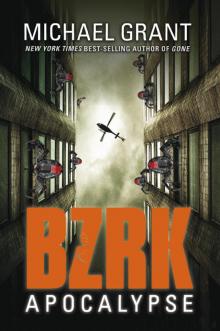 BZRK: Apocalypse
BZRK: Apocalypse Bzrk
Bzrk Love Sucks and Then You Die
Love Sucks and Then You Die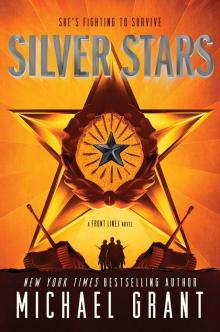 Silver Stars
Silver Stars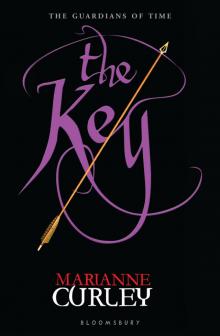 The Key
The Key Front Lines
Front Lines BZRK Origins
BZRK Origins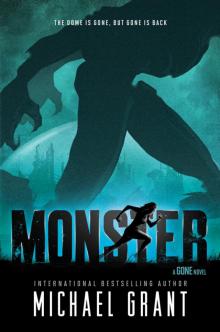 Monster
Monster Gone
Gone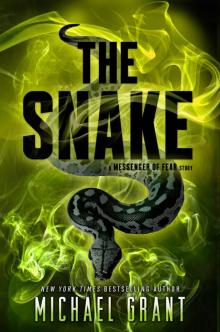 The Snake
The Snake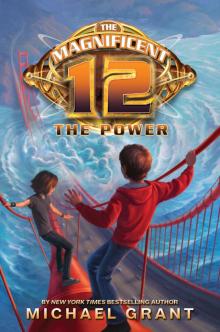 The Power
The Power Hunger
Hunger Lies
Lies A Sudden Death in Cyprus
A Sudden Death in Cyprus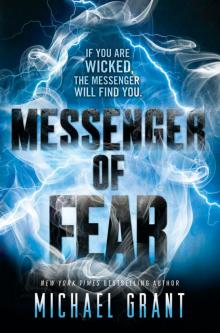 Messenger of Fear
Messenger of Fear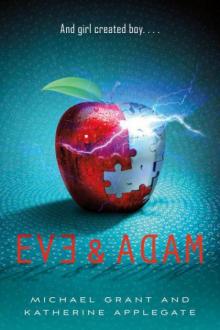 Eve & Adam
Eve & Adam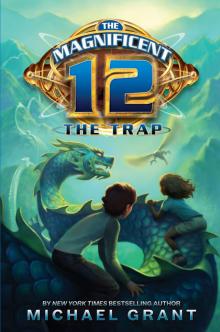 The Trap
The Trap Light
Light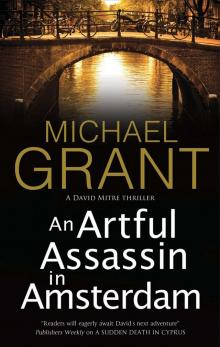 An Artful Assassin in Amsterdam
An Artful Assassin in Amsterdam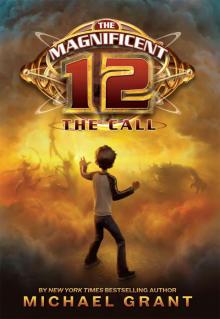 The Call
The Call Hero
Hero Soldier Girls in Action
Soldier Girls in Action Purple Hearts
Purple Hearts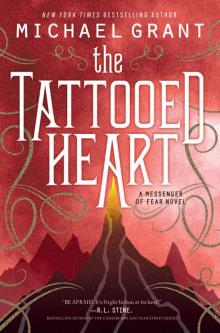 The Tattooed Heart
The Tattooed Heart The Fall of the Roman Empire
The Fall of the Roman Empire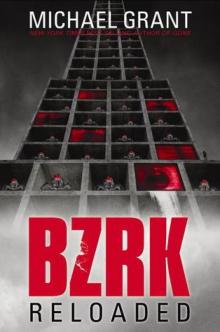 BZRK Reloaded
BZRK Reloaded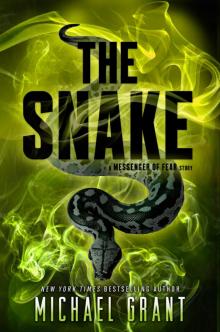 Messenger of Fear Novella #1
Messenger of Fear Novella #1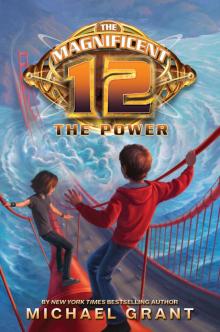 The Magnificent 12
The Magnificent 12 Fear: A Gone Novel
Fear: A Gone Novel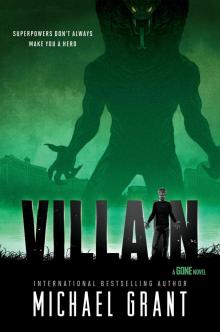 Villain
Villain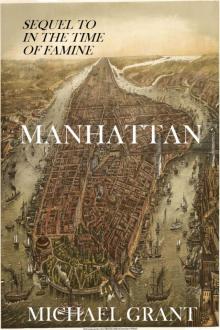 Manhattan
Manhattan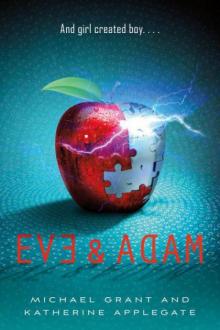 Eve and Adam
Eve and Adam Plague: A Gone Novel
Plague: A Gone Novel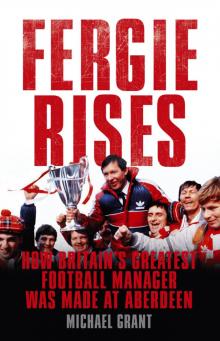 Fergie Rises
Fergie Rises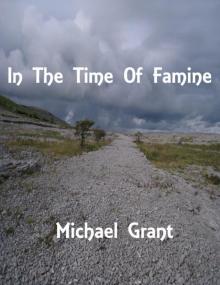 In the Time of Famine
In the Time of Famine Hunger_A Gone Novel
Hunger_A Gone Novel Lies g-3
Lies g-3